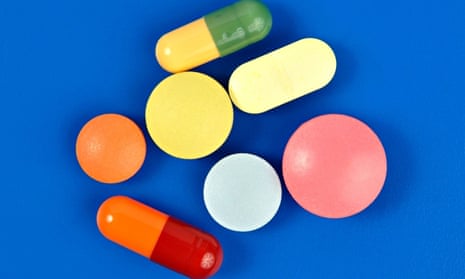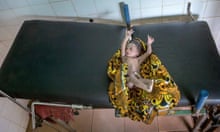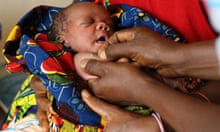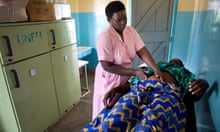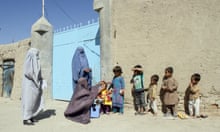GlaxoSmithKline has once again topped a league table that measures the major pharmaceuticals companies’ efforts in enabling people in developing countries to get the drugs they need, while rivals Pfizer and Sanofi have slipped down the rankings.
The Netherlands-based non-profit Access to Medicine foundation said that an estimated 2 billion people around the world still do not have access to the medicines they need.
But, it added, the companies often called ‘big pharma’ are increasingly working to improve the situation. They are not acting for altruistic reasons, but partly because they see a commercial opportunity, especially in middle-income countries such as China, South Africa and Brazil, which account for just under half the world’s population.
The latest biennial access to medicine index shows GSK came first for a fourth year although its score was lower than in 2012. It was closely followed by Danish diabetes specialist Novo Nordisk, American firm Johnson & Johnson and Switzerland’s Novartis.
Twenty of the world’s largest drug companies are assessed on a range of measures, including their willingness to discount prices in poor countries, research on neglected tropical diseases, lobbying, patent policies, breaches of codes of conduct, corruption or bribery, transparency and conduct in clinical trials.
GSK was recently found guilty of bribery by a Chinese court and fined 3bn yuan (£300m) by the government in Bejing, but the ranking does not take this into account. If it had, GSK would probably still have come first, said Wim Leereveld, who devised the index, owing to its activities in developing countries and GSK boss Sir Andrew Witty’s overhaul of sales practices in the US. Witty said: “There is more that we can do and are doing. This year, the index is tougher than ever. It challenges us to think harder about how we drive innovation and enable access to our products. This is a challenge that we are ready and willing to take on. We will continue to push ourselves to go further and faster to make sure our medicines and vaccines reach more people.”
Pfizer fell to 16th place from 11th, while France’s Sanofi dropped to eighth place from third. “Neither has provided evidence of significant improvement in access to medicine since 2012, and have been overtaken by other companies,” the report said. The researchers found little evidence that Pfizer’s pricing strategies help the poorest people while the share of its research pipeline dedicated to diseases prevalent in developing countries is “relatively small,” and has shrunk since the 2012 index.
Pfizer said: “Pfizer continues to pursue a social investment strategy and is undertaking work to find new mechanisms to improve access to medicines for low-income patients.”The report also found that more than half the companies scored (11) are working on medicines tailored for children, with 7% of the overall research pipeline devoted to “child-size” drugs in areas such as tuberculosis and HIV/Aids.
Five companies are developing more than half of the products in the research pipeline for developing countries – Novartis, Johnson & Johnson, GSK, AbbVie and Sanofi.
Jayasree Iyer, head of research at the Access to Medicine foundation, said there is a growing strategic focus on Africa with several companies setting up related business units.
Multinational pharma companies are also granting more licences to companies from developing countries to make and distribute generic versions of their medicines. More are tailoring their prices to different segments of the population in those countries, with HIV/Aids having the most tailored pricing strategies applied to it. However, the report said it is not possible to evaluate whether products have become more affordable for specific patients.
It added: “More than a decade ago, the South African government fought multinational drug companies over access to HIV/Aids medicines in what was dubbed ‘Big Pharma v Nelson Mandela’. This was a low point for the reputation of the pharmaceutical industry, and also marked a turning point in more constructive engagement in the treatment of intellectual property.”
